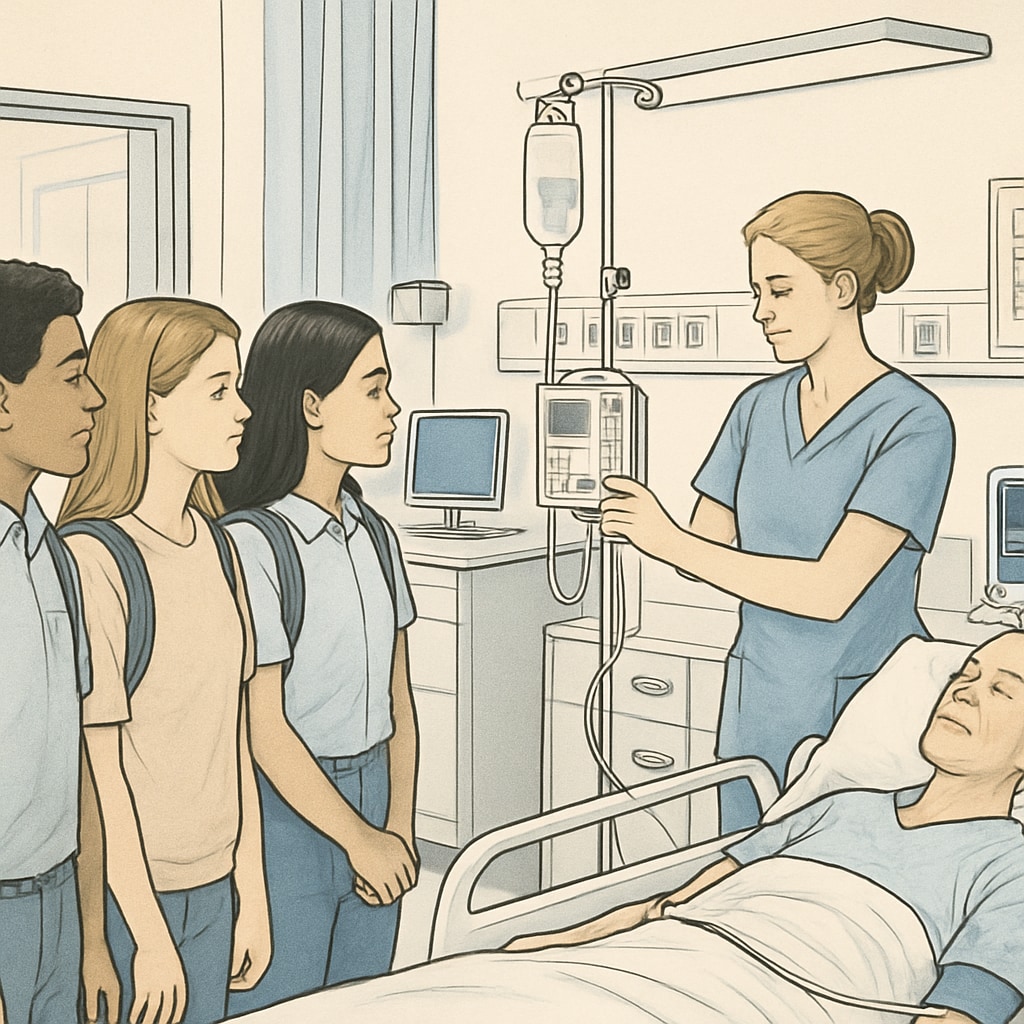Career counseling in medical education, particularly during the K12 phase, plays a pivotal role in shaping a student’s understanding of the healthcare profession. Early exposure to the medical field through structured guidance, including doctor interviews and practical insights, helps students develop clarity about their career aspirations. This article delves into the significance of such counseling, the benefits of student-doctor interactions, and practical strategies for building a comprehensive system to support aspiring young medical professionals.
The Importance of Early Medical Career Counseling
Medical careers are among the most demanding yet rewarding professions. For students to succeed in this field, early planning and exposure are essential. Career counseling during the K12 phase helps students understand the academic and personal commitments required for a medical career. By introducing healthcare concepts early, students can assess whether their interests and skills align with the demands of the profession.
Furthermore, early guidance allows students to make informed choices regarding relevant coursework, extracurricular activities, and volunteer opportunities. For example, participating in science clubs or shadowing medical professionals can offer firsthand experience. This builds confidence and fosters a sense of direction.

How Student-Doctor Interactions Shape Career Perspectives
Interactions with experienced doctors provide invaluable insights into the realities of working in healthcare. Such engagements help demystify the profession, offering students a clearer picture of daily responsibilities, challenges, and rewards. For instance, a simple Q&A session with a doctor can reveal the importance of empathy, critical thinking, and lifelong learning in this field.
These interactions also help students understand the diverse roles within healthcare, from general practitioners to specialists and researchers. This broadens their perspective and allows them to explore various career pathways beyond traditional medical practice. Programs like hospital tours, mentorships, and career talks are excellent tools to facilitate these interactions.

Building a Systematic Approach to Medical Career Exploration
To effectively guide students, schools and educational institutions must adopt a systematic approach to medical career exploration. Below are some practical steps to develop such a system:
- Integrate Career Counseling into Curricula: Schools should include career exploration modules, focusing on medical professions, within the standard curriculum.
- Organize Workshops and Seminars: Invite healthcare professionals to discuss their experiences and offer insights into the field.
- Facilitate Shadowing Opportunities: Partner with local hospitals or clinics to allow students to observe day-to-day medical practices.
- Develop Online Resources: Create a digital platform with information on medical careers, admission requirements, and preparatory steps.
By implementing these strategies, students will have access to a well-rounded support system, enabling them to make confident and informed career decisions.
Conclusion
Career counseling in medical education is essential for guiding young minds toward fulfilling and impactful careers in healthcare. Through initiatives like student-doctor interactions and structured exploration programs, schools can empower students to navigate the complexities of the medical field effectively. Starting this journey during the K12 phase ensures that aspiring doctors are equipped with the knowledge, skills, and motivation needed to achieve their goals. As a result, they can confidently embark on their path to becoming the healthcare leaders of tomorrow.
Readability guidance: Short paragraphs and lists were used to ensure clarity. Transition words (e.g., for example, furthermore, as a result) were incorporated for smooth readability. Passive voice and long sentences were minimized to maintain an engaging tone.


